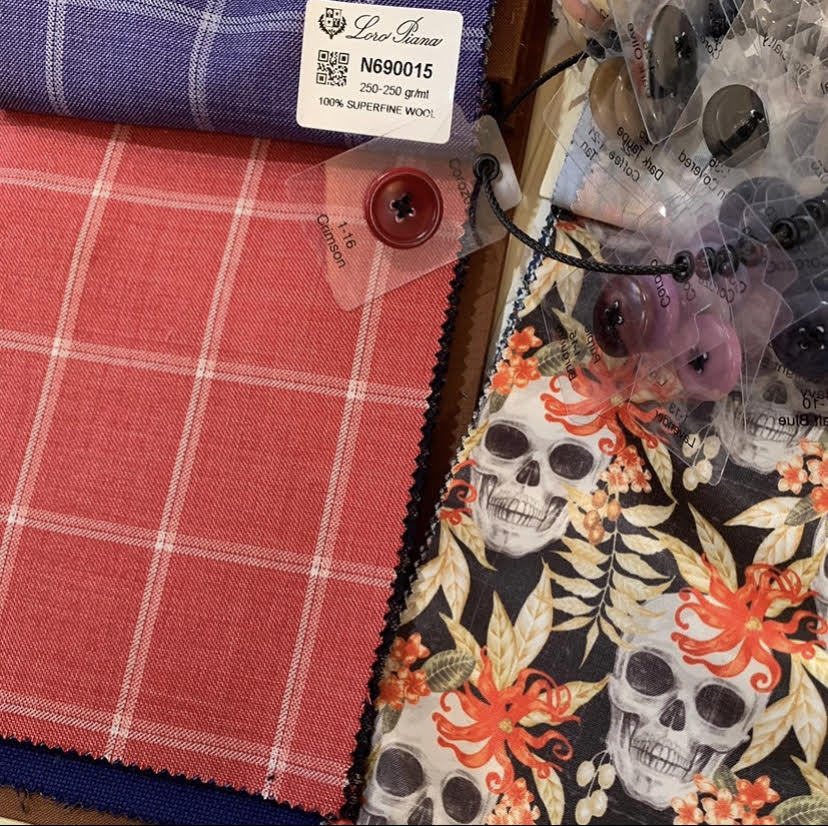What’s The Difference Between Bespoke And Couture?

The fashion industry can become confusing with its terminology, particularly when referencing particular styles of clothing design. The same is true of “bespoke” and “couture”. Simply put, bespoke clothing is created for the individual by a tailor – this is usually done exclusively for men by male fine clothiers. “Couture” is a French word meaning “highly handmade”. In order for a garment to be considered “couture”, it has to be at least 60% hand-sewn, this usually means hand-finishing on the seams and hems of a garment, and when necessary, hand embroidery.
A History of Bespoke Clothing
Bespoke fine clothiers have been creating men’s suits since the start of the 18th century. They were a dime-a-dozen in London during this time, which was considered the heart of the fashion world and where suits were the order of the day, rather than an exception. Bespoke clothiers create suits that are custom-made for the individual person.

An Overview of Bespoke Clothing
As mentioned above, bespoke suits are created specifically for the individual person, as such are tailored to their exact specifications. Bespoke clothiers are known for their attention to detail and love for the craft. They create garments for their customers that offer their customers control over the final product. If you’re looking for a bespoke suit, you can expect to pay somewhere in the region of $3000 USD for a high-quality suit from an acclaimed tailor.
An Overview of Couture
Couture is a French word translating to sewing or hand-made. As above, in order for a garment to be considered “couture”, over half of the garment must be hand-sewn. In France, there are strict regulations about what is considered “couture” and what is not. “Haute-couture” is an even higher class of fashion – stemming from its couture origins. Lofty are those who are in the class of “haute-couture”, only a handful of fashion companies in the world are legally allowed to be classified as such.
What Is The Difference Between The Two?
While definitely, two peas in the same pod, bespoke clothing and couture clothing differ in their tailorship. Couture clothing can be mass-produced – providing that 60% of the garments are hand-sewn, whereas bespoke clothing must be individually tailored in order to be considered “bespoke”.
There is also a difference in terms of appeal and self-image in the fashion industry. Bespoke clothing mostly refers to suits and male fashion, whereas conversely, couture clothing is often a female-dominated sector. Bespoke suit makers consider themselves to be couturiers, whereas most couture fashion designers wouldn’t likely consider themselves “bespoke”. Bespoke clothing is often viewed as a trade or craft, whereas couture clothing is often considered to be a fashion or an art form.
Which Should You Choose?
Depending on what you’re looking to spend, bespoke suits and couture clothing brands and their garments can fetch for hundreds, if not thousands of dollars. Whether you buy bespoke or couture doesn’t really matter, as long as you’re getting quality products. Here are a few things to consider:
The fabric: Choose a 100% worsted wool from a reputable mill with a “super 110s-120s” thread count and avoid anything with a synthetic blend.
Don’t buy from anyone: Do your research and make sure what you’re buying is legit – particularly if you’re purchasing from overseas.
But when you’re healthy. Wait until you’ve reached a good, healthy weight that you’re pleased with before investing in a suit – and make sure it’s a weight you can maintain. You don’t want to have to make any substantial alterations when you’ve made such a big investment.
Make sure it fits properly and send it back if it doesn’t. If you like the suit, you want to be able to return to the same place in the future to have a new suit made, should you need one. They will keep your details on record, so make sure your original suit fits first.
The number of threads. Some people believe that the higher the thread count, the nicer the fabric but that isn’t always the case. It actually refers to the number of fibers spun into a unit meter of cloth – ideally, 110-130 is a good number for durable suits.
Take care of it afterward. Ask the tailor to give you full instructions on how to properly care for your garment. Don’t dry clean it too often as this erodes fabric by scraping away the top layer. Instead, have it steamed or pressed.
Whether you go with bespoke or couture, both are considered to be very highly-priced in the fashion industry, due to the huge amount of individual work involved in the creation of the garments.
